Deeply weird: South Korea’s real-life political Squid Game is compelling viewing
The singularly quirky culture that gave birth to Netflix’s dystopian survival thriller, and the menacing shadow of its evil twin, shapes South Korea’s turbulent politics.
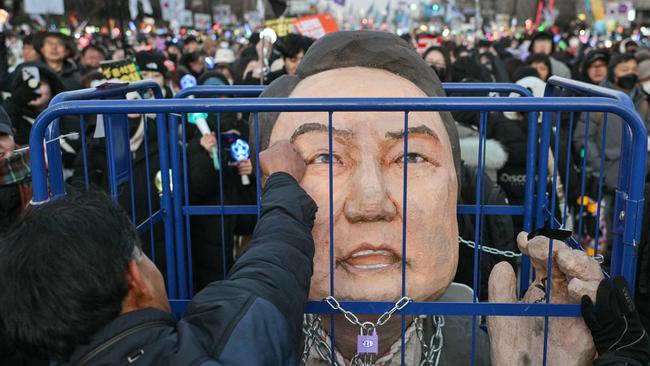
The bizarre behaviour of South Korean President Yoon Suk Yeol, who early this month suddenly – and disastrously for himself – declared martial law, comes from a deep well of weirdness in one of Australia’s least known but most consequential partners.
This is the singular culture that gave birth to Squid Game, the dystopian survival thriller that conquered the TV-viewing world, becoming Netflix’s most popular show, and whose second season, also created by Hwang Dong-hyuk, launched on Boxing Day.
It is no coincidence that South Korea’s rich vein of individual quirkiness and of an ardent advocacy of human rights should flourish so closely to its antithesis, to the North Korean lock-step subjugation to absolutist Kim dynastic rule.
South Koreans can metaphorically stand on tiptoes and gaze across the 38th parallel to see clearly where and how they don’t want to live – in their country’s evil twin.
The positive alternatives for South Koreans to carve out for their own lives are profuse and they pursue them energetically. Theirs is a remarkably creative society, but one squeezed between the worlds of China and Japan, so their Korean uniqueness is often overlooked.
That’s the case even in Australia despite South Korea being a crucial customer, our third biggest export market, as well as our fourth largest source of imports. And about 140,000 Australians have Korean ancestry.
South Koreans have much to be proud about.
The comparison is stark with North Korea, with which Australia established diplomatic relations 50 years ago under Gough Whitlam. Today only medicine and food can be sold or supplied by Australian firms to North Korea without restriction, due to the range of sanctions placed on the country for its serial rogue behaviour.
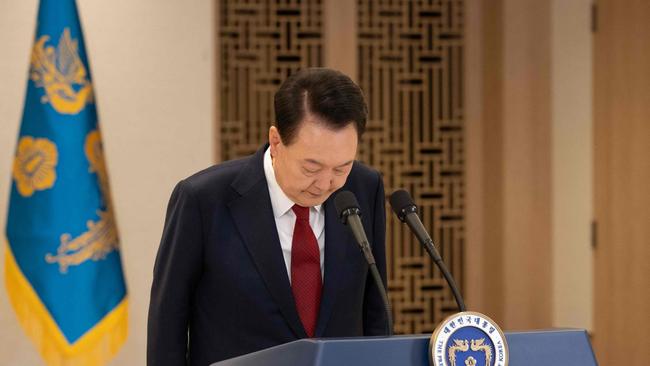
The southern part of Korea was originally poorer than the north, and after three years of civil war and intense fighting that ended in an armistice in 1953, US General Douglas MacArthur, who had led the Allied forces, forecast gloomily: “It will take at least 100 years for South Korea to recover.”
The UN suggested that the south might send emissaries to learn from the comparative success, in development terms, of Kenya. Today the GDP of South Korea – whose 52 million-strong population is about the same size as Kenya’s – is 16 times bigger and African nations are studying the Korea success story.
Grievous misjudgment
Yoon’s explanation of his brain-fade was that MPs elected this year – when his centre-right party lost spectacularly to the opposition centre-left, making him something of a lame-duck president – are tacit supporters of North Korea, bringing the South’s independence under threat.
The military officers whom his action had summoned are by now fully educated about the deep unpopularity of earlier decades of martial law and responded cautiously to the President’s insistence that they seize control. Members of the public – many of them practised protesters for serial causes – rushed to the streets. And members of Yoon’s own party entered the parliament to vote against his action.
He’s now in limbo, barred from travelling overseas, his powers suspended pending a Constitutional Court decision on his presidency, with technocrat Prime Minister Han Duck-soo taking on his duties. But on Friday the parliament voted to impeach Han after the Acting President declined to make judicial appointments needed to advance Yoon’s impeachment. Yoon is the prime victim of his own grievous misjudgment.
Jim Chalmers in part blames “political turbulence in places like Korea and France” for our economic woes, but South Korean leadership mishaps are unlikely to affect Australia, certainly not as much as the political straitjacket in China – the lack of “turbulence” or contestation – that denies it long-overdue economic reforms.
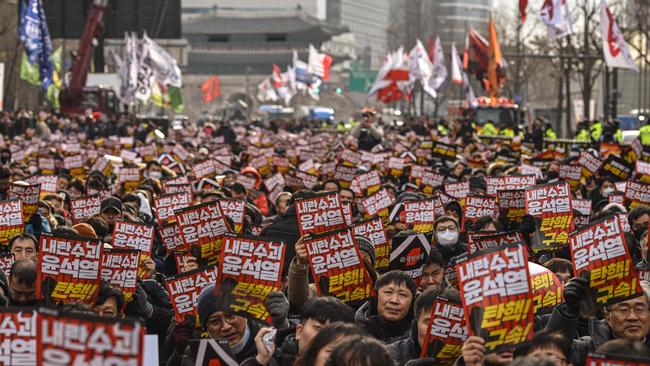
And South Korea has maintained much of its economic energy despite recently nurturing a run of problematic presidents of varying political persuasions.
In 2009, Roh Moo-hyun leapt to his death in a ravine, embroiled in a corruption scandal after five years in power, leaving a note fearing “countless agonies down the road”. Lee Myung-bak, in office from 2008 to 2013, was pardoned in 2018 after serving five years of a 25-year sentence, also for corruption.
The present troubled president, Yoon, was previously – like Britain’s Labour Prime Minister Keir Starmer – a top prosecutor who led the investigation of a scandal that brought about the impeachment of Park Geun-hye in 2016. She was pardoned in 2021 after being jailed for 22 years. Her father, Park Chung-hee, the great driver of South Korea’s industrialisation, served five terms as president after 1961. Her mother was killed in 1974 by a stray bullet intended for her father, when Park Geun-hye was 22, and her father was assassinated five years later by his lifelong friend Kim Jae Kyu, head of the Korean Central Intelligence Agency.
Faith in shamans
A common thread connecting most of these leaders is their faith in shamans, a further intriguing feature of Korean culture.
South Koreans are diversely devout. About 23 per cent are Buddhist, 18 per cent Protestant, 11 per cent Catholic, while many others follow messianic groups such as Donghak or Eastern Learning, or like the Unification Church founded by Sun Myung Moon, and often known as
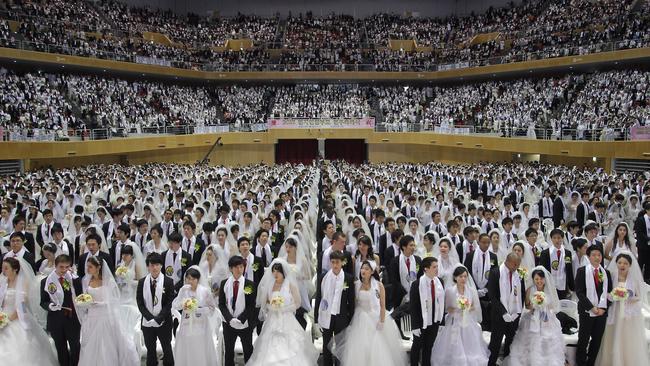
Moonies. Almost 30,000 work as Protestant missionaries in 169 countries. And Confucianism retains influence without direct adherents.
In North Korea, the hereditary communist dictators have themselves become the sole accepted subject for worship.
Fourteen per cent of South Koreans say their primary religion is shamanism, also known as musok or mu-ism, a traditional Korean belief system that embraces many deities and spirits. Shamans or mudang, usually women, who are expert at wrangling the spirits, mediate between them and their human followers, who are often also paying clients. Yoon, while campaigning in primaries, had the character for “king” written on his left hand during debates with rivals – a shamanist way of summoning good luck.
Park Geun-hye was chiefly disgraced due to her dependence for advice on Choi Soon-sil, whose father Choi Tae-min claimed that Park’s assassinated mother had appeared to him in visions asking him to help her daughter.
Choi Tae-min was a Buddhist monk, a Protestant pastor and a shaman who led the Church of Eternal Life that combined all three spiritual strands.
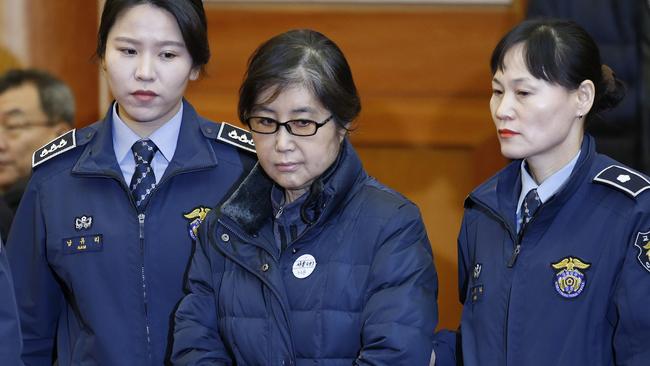
Choi Soon-sil gained access through Park to many high-level meetings and classified documents, including those from which she benefited financially. She became so influential that she persuaded a university to change its admission criteria to enable her daughter to gain a place. A US diplomatic cable described her as “a Korean Rasputin”.
Some Korean corporate leaders also have been prone to occult arts, especially divination. Samsung founder Lee Byung-chul followed pungsu, the Korean version of feng shui, and employed “face readers” – shamans who claimed to be able to assess people according to their physical features – at his firm’s job interviews. South Korea’s economy is marked by the ubiquity of chaebols – family-dominated conglomerates – of which Samsung is the most powerful but that also include Hyundai, LG, Lotte, Hanjin and SK.
’Stupid leaders with stupid policies’
Korean intensity naturally requires an arduous education regime. A typical middle-class South Korean child will attend school from 7.30am to 5pm, then at least two days a week study at an after-school college from about 6.30pm to 10pm, before heading home and starting regular homework.
It is now a couple of generations since South Korean children had any direct contact with members of their extended family across the northern border. Few people in Seoul today ever think about the north, even though it’s only 50km away, a 45-minute drive.
The north is intensely strange to visit – the world’s most successfully brainwashed society – although its version of weirdness works extraordinarily well for the Kim imperial family, now in its third generation of unchallenged absolutist rule.
Russian Andrei Lankov, a professor at Kookmin University in Seoul, formerly at the Australian National University, is an acute analyst of North Korean governance. What he told me a while ago holds good, if horribly so: “North Korea’s stupid leaders with stupid policies” – as widely derided internationally – “have died, one after another, of old age in great comfort, with their children and grandchildren inheriting. If you believe politics is about keeping power, they have succeeded”, in part by walling in their country as The Land That Time Forgot.
In immense contrast, South Korea’s contemporary culture – buoyed by the country being, on a par with Taiwan, the most wired in the world – is full of innovation, vitality and at times eccentricity.
Of course, globally big K-pop bands are scrupulously crafted and manipulated, including manifesting how even some teenagers in South Korea have become habituated to repeat plastic surgery. But the Korean music scene stretches well beyond that phenomenon, including the international breakthrough a dozen years ago by the droll performer Psy with his hokey but catchy Gangnam Style lampooning the nouveau riche in Seoul’s most gentrified suburb.
Bong Joon-ho’s film Parasite won the Oscar for best picture in 2020 and both the film industry and TV soap operas have gained huge followings around the world, augmented by wide critical acclaim for American-Korean films including Minari and Past Lives.
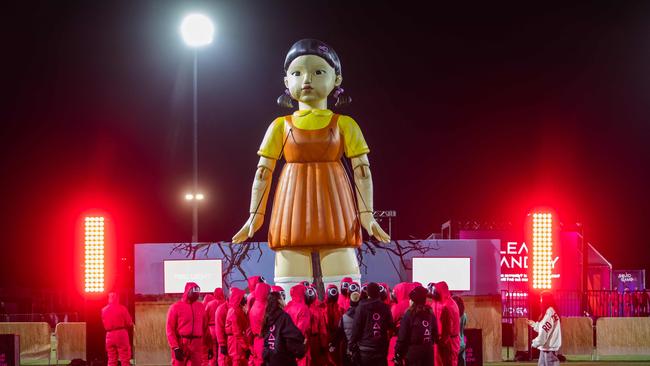
An Australian has got in on this contemporary cultural joyride, too: Sam Hammington, famous to Koreans as a comedian, an actor and a foreigner whose Korean is so good that’s also funny, is a family man who stars in reality TV shows including Real Men in which the cameras followed him and a few Korean peers as they were inducted into the army – a mandatory two-year experience for all men. He had learned from that, he told me, that “happiness comes with the unit”.
Entitled frustration
Unhappiness, dissatisfaction and anger also can rise swiftly in South Korea, as it has against Yoon, whose policy directions – moving closer to Japan and the US, resuming the building of nuclear reactors with a view to sourcing 35 per cent of total electricity in a decade, building supportive links to Ukraine before Kim Jong-un started sending mercenaries to fight for Russia in that war – now face far stronger contestation from parliamentarians and the public.
When originally elected in March 2022, Yoon took an initial bold, symbolic down-to-earth step, abandoning the highly secluded Blue House from which Koreans had been ruled for 74 years, opening it to the public and moving in to a more utilitarian former Defence compound. But like many political leaders, he appears soon enough to have stopped listening, and in a moment of entitled frustration ordered troops to seize the parliament, inexcusably overlooking South Koreans’ deep embrace of democratic values.
The country was occupied by Japan for 35 years until 1945, then came the civil war, then martial law was frequently imposed during the 1960s and ’70s. Since then, South Koreans haven’t taken their freedoms lightly.
Long-term Seoul resident and historian Andrew Salmon, originally from Britain, describes South Korea as “perhaps the greatest national success story of the 20th century”. And it hasn’t stopped running in the 21st, however often its leaders let down its people, just as the latter sometimes disappoint those they elect to rule, and however quirky its zeitgeist.
Rowan Callick is an industry fellow at Griffith University’s Asia Institute.


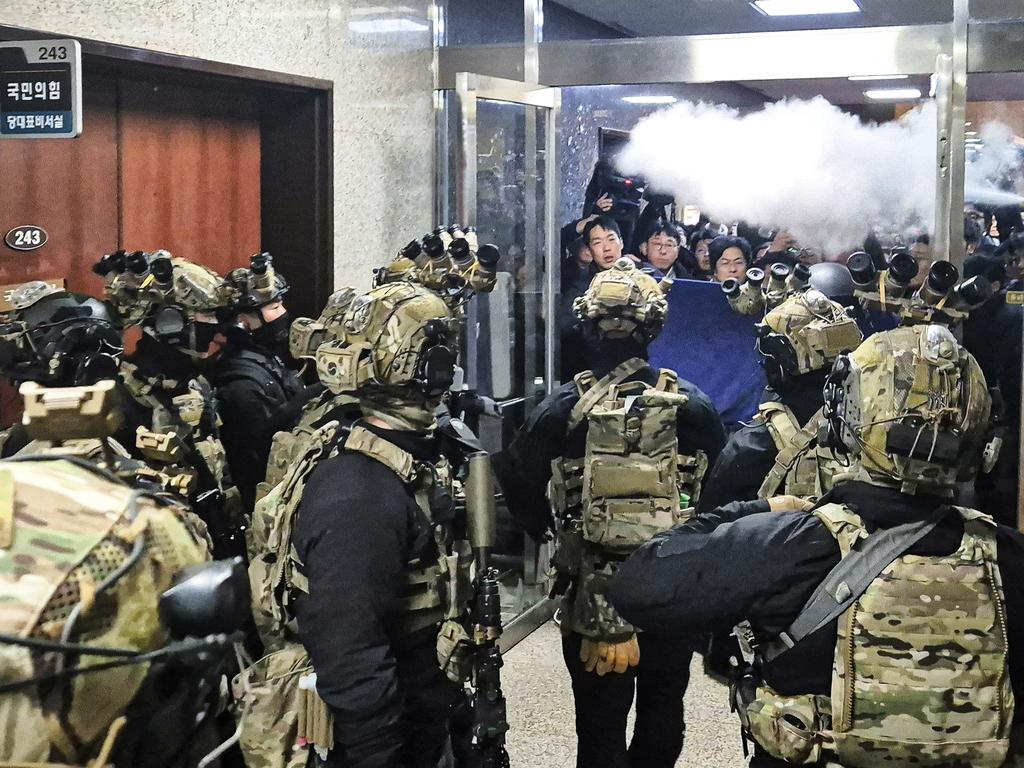
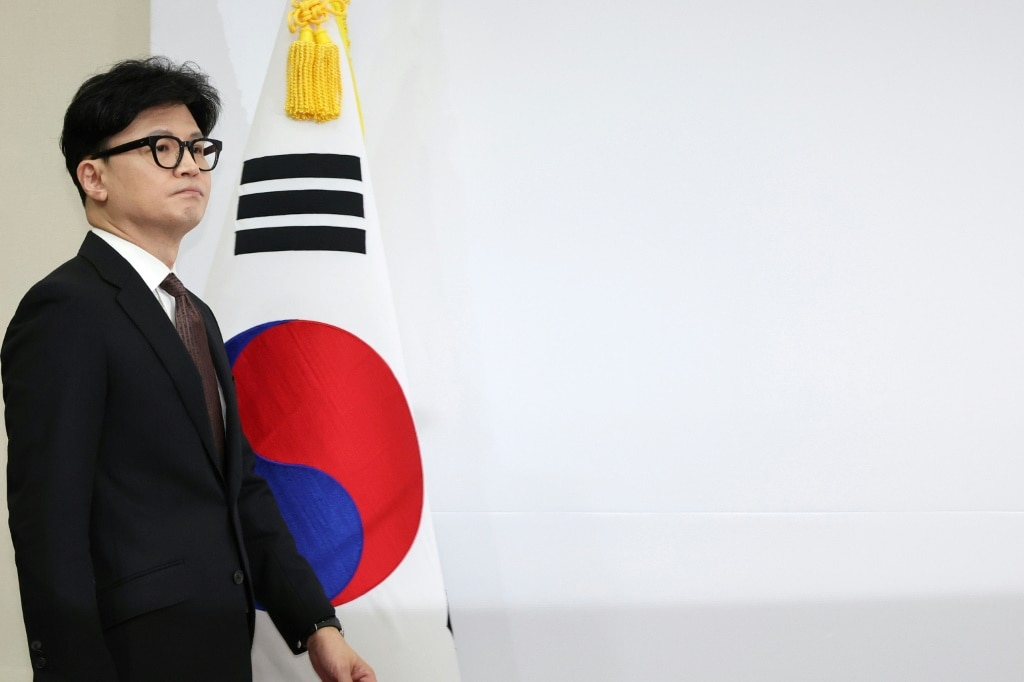
To join the conversation, please log in. Don't have an account? Register
Join the conversation, you are commenting as Logout